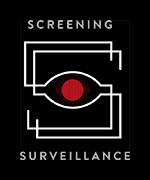
The invasive surveillance apparatus we find embedded in almost all aspects of our technologically mediated lives collects and analyzes personal information which is then used by organizations to produce various outcomes that are often out of our control. Surveillance is not simply good or bad, helpful or harmful, but it is never neutral, and it is increasingly at the core of larger systems of control. Screening Surveillance is a short film series created by sava saheli singh that aims to raise awareness about how large organizations use data and how these practices affect life chances and choices. We need to consider these implications, and critically examine the logics and practices within big data systems that underpin, enable, and accelerate surveillance.
Speculative surveillance is an effective way to highlight the potential harms of invisible surveillance systems and these short films speculate surveillance futures and the effects of deeply embedded and connected surveillant systems on our everyday lives. The films were produced with support from and in collaboration with the Surveillance Studies Centre at Queen’s University, and the eQuality Project and the AI+Society Initiative at the University of Ottawa. Intended as public education resources to spark discussion and extend understandings of surveillance, trust, and privacy in the digital age, each film focuses on a different aspect of big data surveillance and the tensions that manifest when the human is interpreted by the machine.
Each film raises issues in our understandings of trust and surveilled relations:
Transcripts are available in English (Canada), French (Canada), Japanese, and Portuguese (Brazil) in YouTube.
Click the images below to watch the films...
#tresdancing features a young person who has little choice but to use increasingly invasive educational technology to make up for a failing grade.
Written by Tim Maughan and sava saheli singh
Produced by Lesley Marshall and sava saheli singh
Directed by HingmanLeung
(Content warning for anxiety.)
Blaxites follows the story of a young woman whose celebratory social media post affects her access to vital medication. Her attempts to circumvent the system leads to even more dire consequences.
Written by Nehal El-Hadi
Produced by Josh Lyon and sava saheli singh
Directed by Josh Lyon
(Content warning for mental health, anxiety.)
In A Model Employee, to keep her day job at a local restaurant, an aspiring DJ has to wear a tracking wristband. As it tracks her life outside of work, she tries to fool the system, but a new device upgrade means trouble.
Written by Tim Maughan
Produced by Leila Khalilzadeh and sava saheli singh
Directed by Leila Khalilzadeh
(Content warning for familial pressure, burn out.)
In Frames, a smart city tracks and analyzes a woman walking through the city. Things she does are interpreted and logged by the city system, but are they drawing an accurate picture of the woman?
Written by Madeline Ashby
Produced by Farhad Pakdel and sava saheli singh
Directed by Farhad Pakdel
(Content warning for mental health, self-harm.)
 This project is licensed under a Creative Commons Attribution-NonCommercial-ShareAlike 4.0 International License.
This project is licensed under a Creative Commons Attribution-NonCommercial-ShareAlike 4.0 International License.
Blaxites, A Model Employee, and Frames were funded by the Office of the Privacy Commissioner of Canada (OPC), under the Contributions Program (2018-2019); the views expressed herein are those of the author(s) and do not necessarily reflect those of the OPC. They were also supported by the Social Sciences and Humanities Research Council of Canada.
#tresdancing was funded by the Social Sciences and Humanities Research Council of Canada and the Scotiabank Fund for AI and Society at the University of Ottawa.
